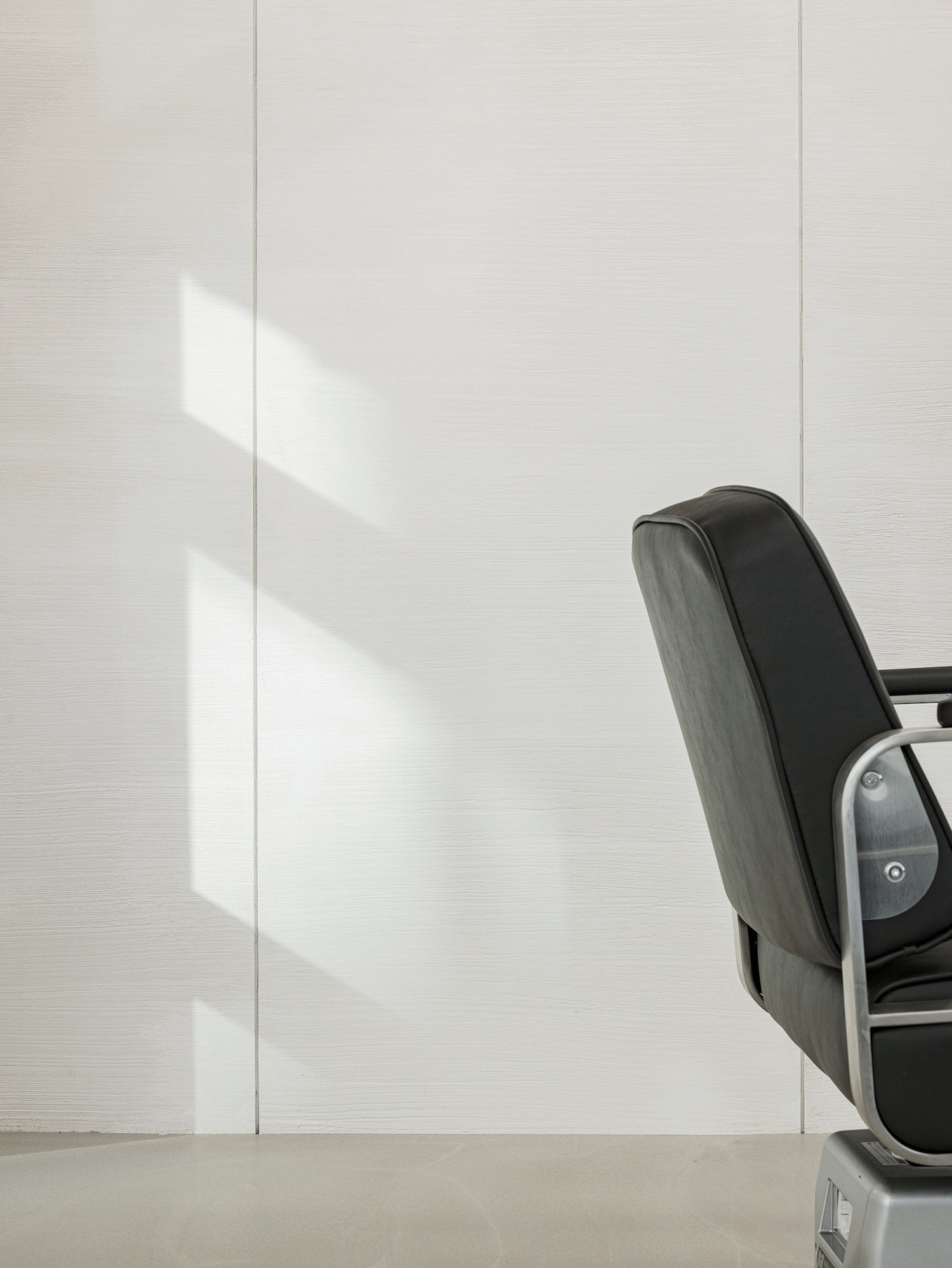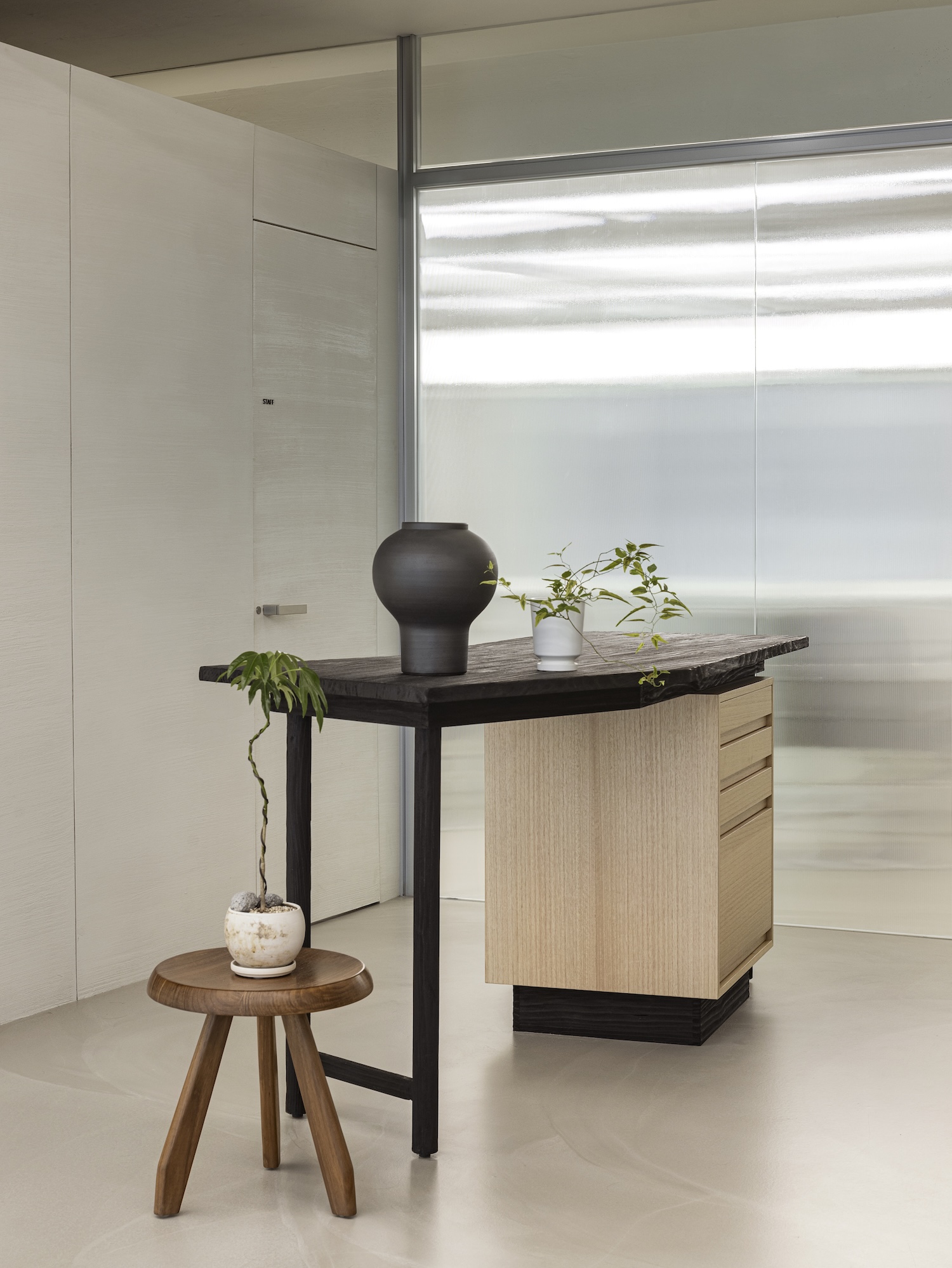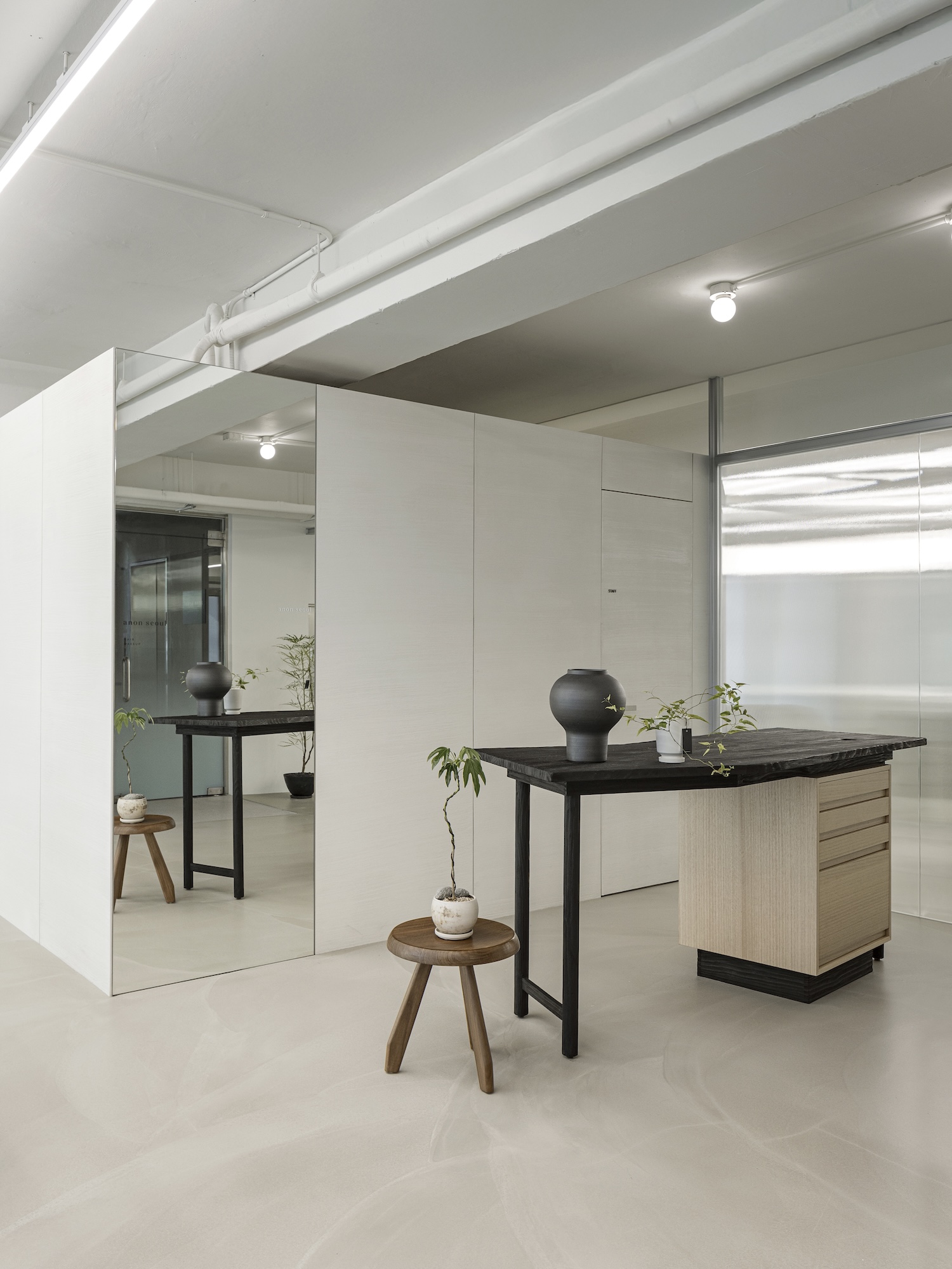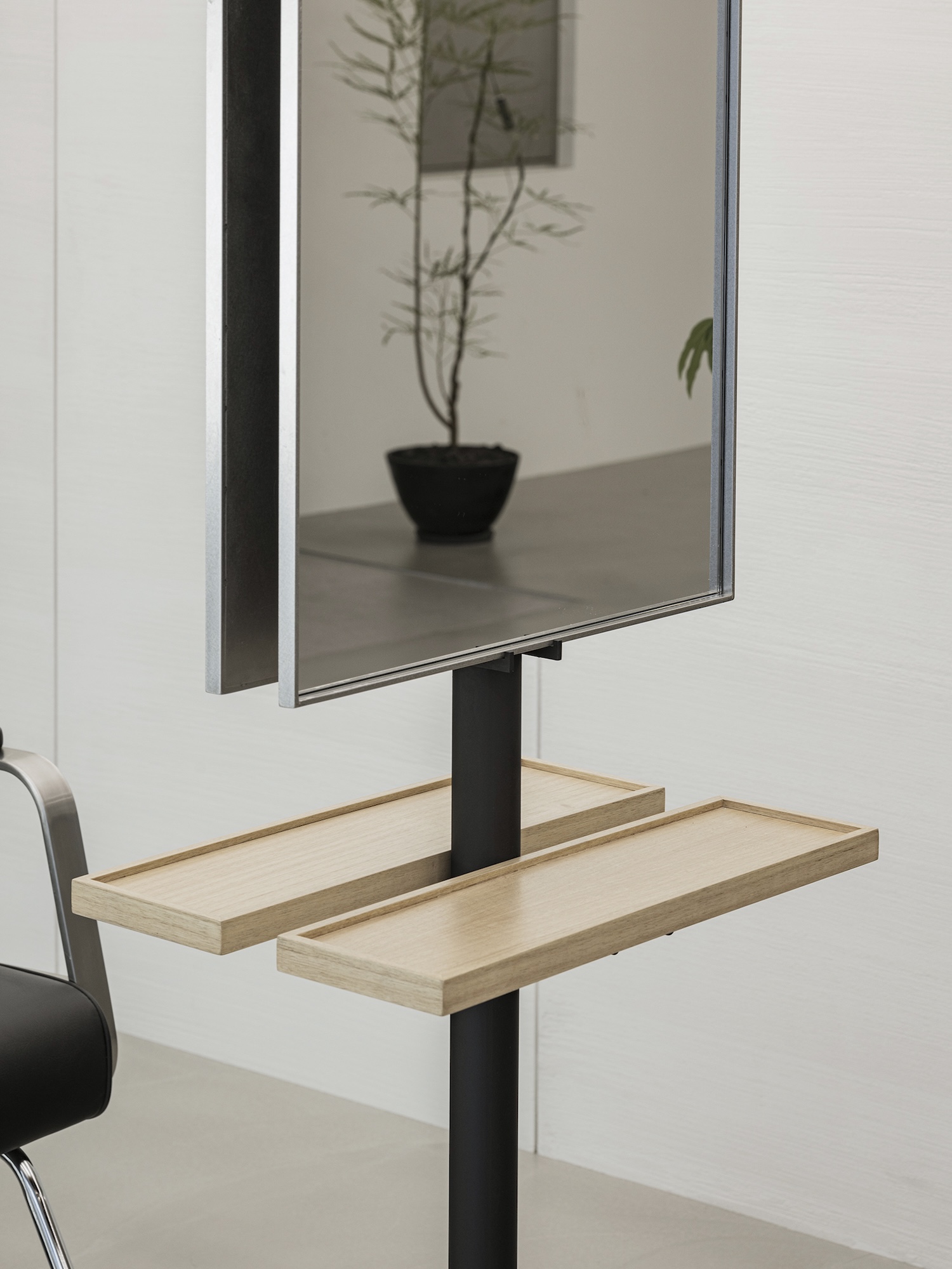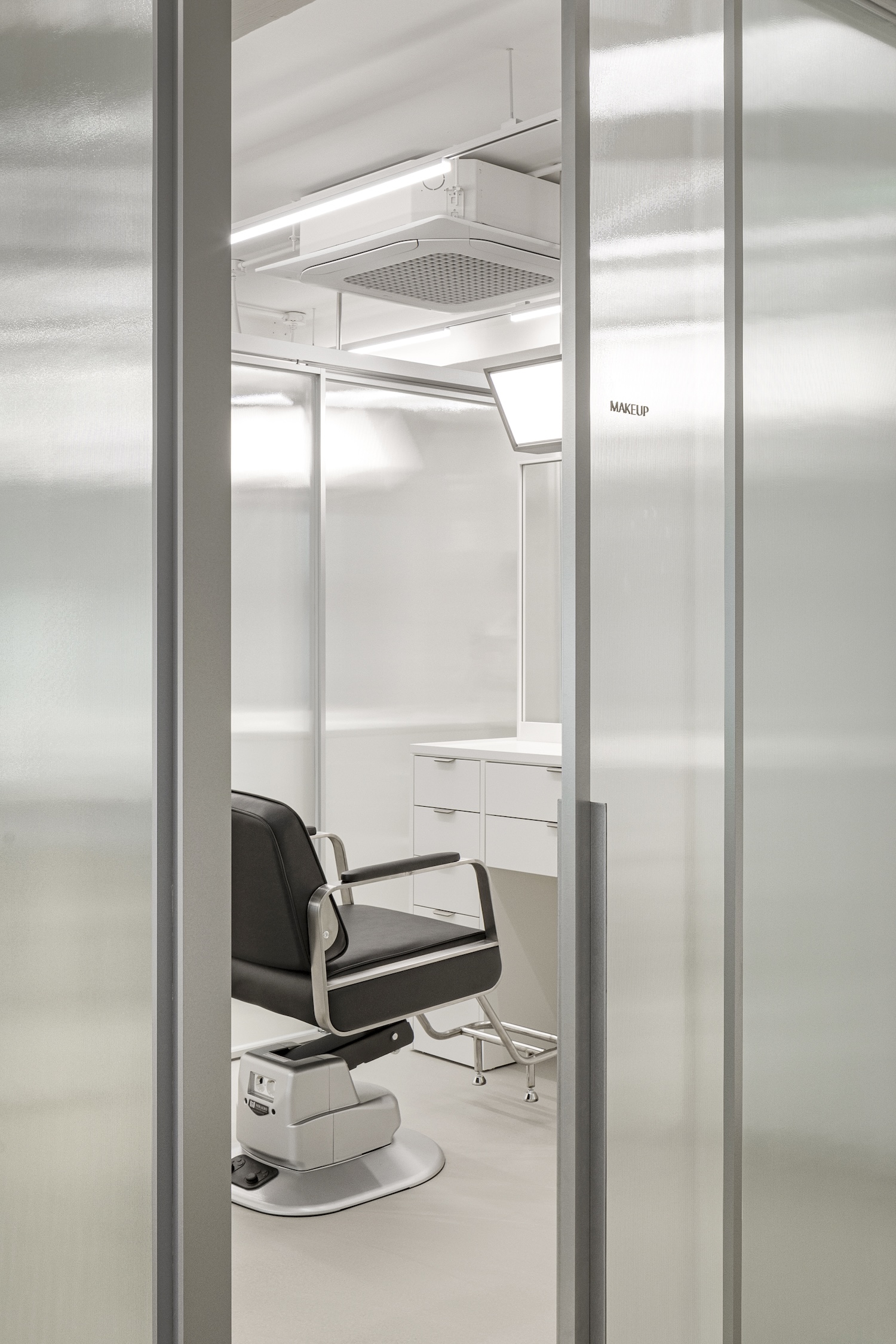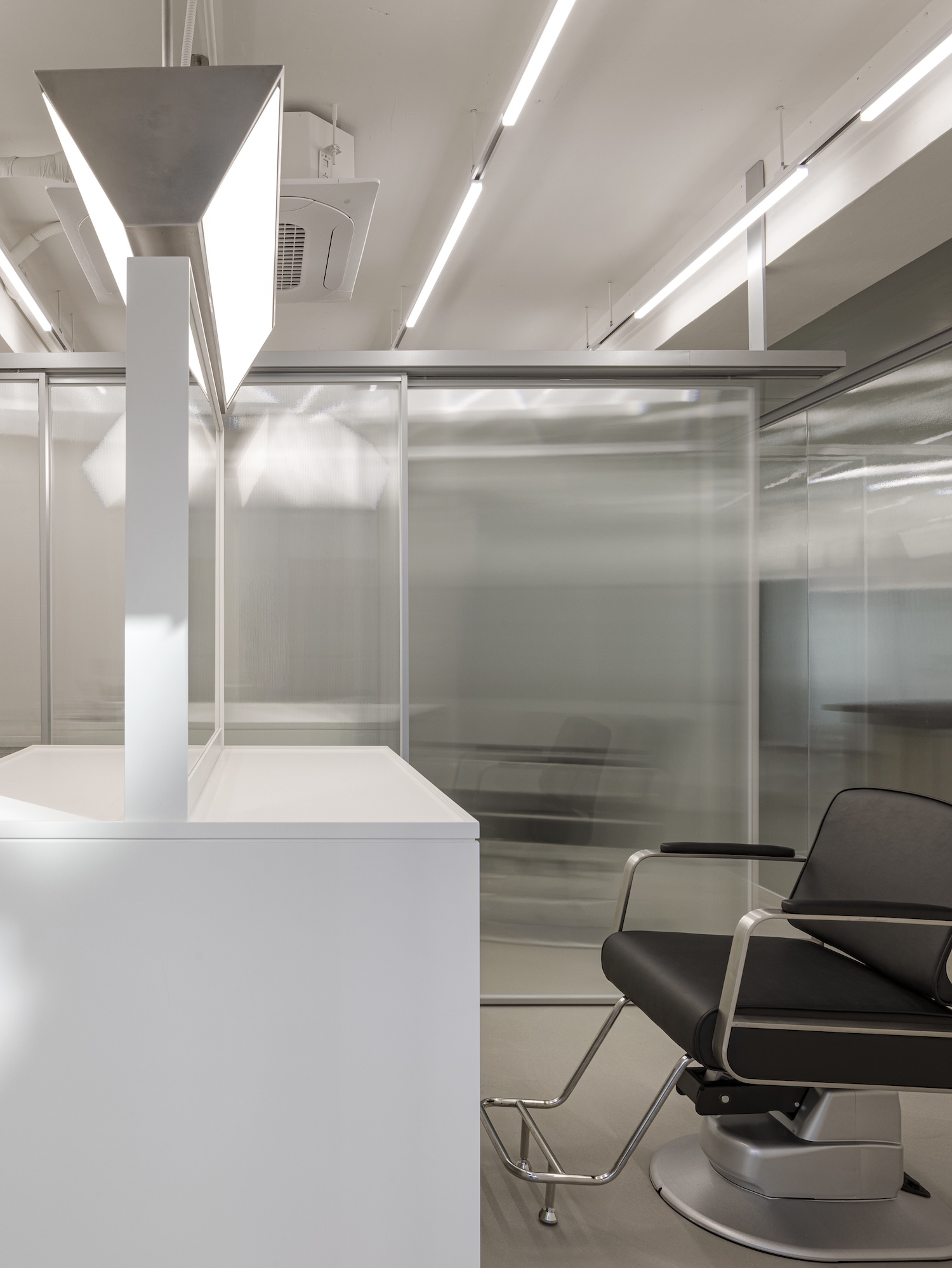Anon Seoul is a minimalist space located in Seoul, South Korea, designed by orosy studio. A suspended box hovers like a geometric cloud above the reception area, creating a visual paradox that immediately captures the visitor’s attention. This architectural gesture embodies the salon’s fundamental philosophy: lightness achieved through structural precision, openness maintained alongside privacy. In this spatial moment, we witness the essence of a design that refuses easy categorization.
The textured walls throughout the space provide a tactile counterpoint to the geometric purity of the suspended staff area. These surfaces aren’t merely decorative but serve as a kind of material dialogue, creating depth through the interplay of light and shadow. This attention to surface treatment recalls the Japanese concept of wabi-sabi—finding beauty in imperfection—yet executed with distinctly contemporary sensibilities.
What makes this interior particularly compelling is how it navigates contradictions. The space harmonizes coolness with warmth, precision with rawness, creating what might be called a “structured serenity.” This design approach has historical precedents in mid-century Scandinavian interiors, where material honesty was similarly valued, but Anon Seoul pushes this tradition forward through its deliberate material contrasts.
The makeup area demonstrates particular thoughtfulness in its use of patterned glass—a simple material innovation that solves complex problems of privacy, light diffusion, and psychological comfort. This element allows customers to focus entirely on themselves, creating what designer Tadao Ando might call “a zone of contemplation within the urban chaos.” The glass serves as both boundary and connector, filtering light while maintaining the salon’s sense of openness.

